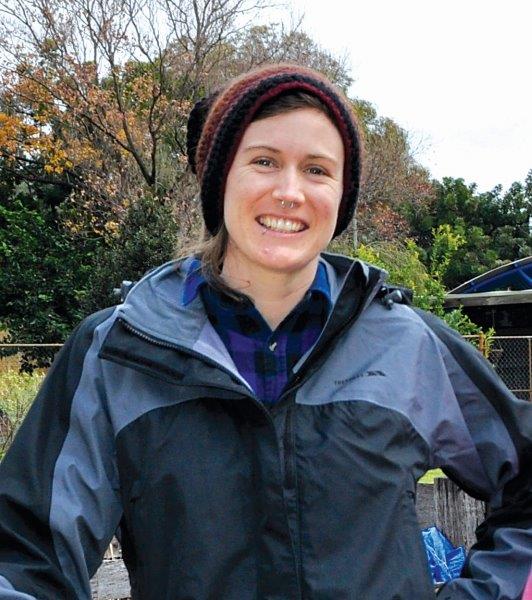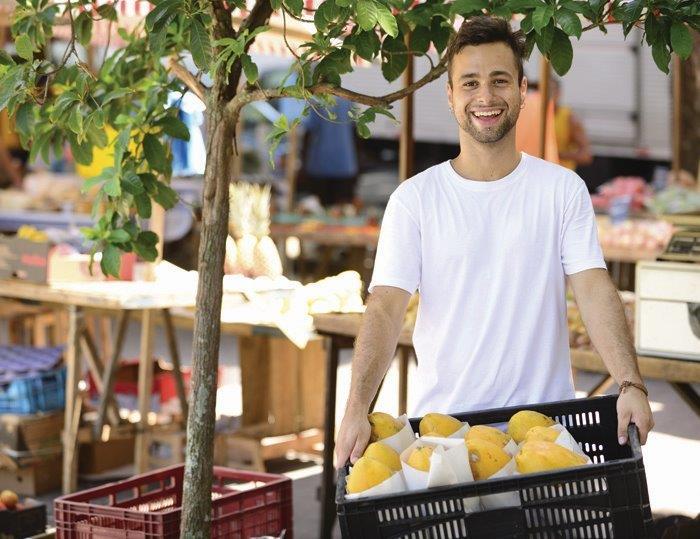In Australia’s cities, it’s so easy to spend days or weeks without really connecting with the natural environment. Not only that, but how many of us actually know how the ecosystem works, or where our place in it is? Even in rural areas, it could be said that we dominate the land without really living with it.
Over time we’ve lost a vital connection to the earth and the natural system with which we once lived. Rev Dr Geoff Lilburne has a passion for theology of the land and has published works in the areas of contextual and eco theology. Geoff said that while we place a lot of importance on our history – or timelines – we also should be thinking about the space that we exist in.
“In our western tradition we have tended to think time and history are important, but we haven’t tended to think of ‘space’ or ‘place’ as important,” he said.
He continued, saying that it is important for churches to develop a sense of place by living locally and taking care of the spaces that we inhabit.
Part of thinking about this local space means looking into how we consume our food. While the food we eat is possibly one of the most direct ways we interact with our natural environment, many of us have no real sense of where it has come from and the work and resources that have gone into producing it. We may rationally know that our beef is dead cow or that our apple has grown on a tree, but for most of us, our minds simply don’t comprehend what that actually means for the producers, the economy and the planet.
Bonnie Wykman is a gardener, educator and entrepreneur. She believes that something as basic as eating is a political act.
“Where we spend our money ultimately determines how we want the world to be used,” she said. “If we choose to support a system that is about driving profit for large corporations then we are limiting our food choices and investing in systems that I think ultimately are quite corrupt.
“The other alternative to that is investing in systems that see food not as a commodity, but as something that is a source of health for people. It’s actually something that sustains us and nourishes us. It’s to nurture the producers that actually provide us the food and to give them a decent livelihood and it’s also about taking care of the land that we ultimately need for our survival.”
Food waste, environmental degradation, food miles and food sovereignty all are hugely affected by the way we consume. But there are alternatives that can lead to a better connection with what we put inside our bodies. By eating in season, buying from local producers or at farmers markets and taking small steps to become a producer rather than just a consumer – even if it starts with a herb garden in the window sill – all can help to build a connection and relationship with our food systems. Once this starts to happen, Bonnie believes that food consumption becomes a sacred act.
Her journey started with gardening.

“Doing that activity became a time and a place where I felt like I connected with creation and therefore the creator. I think it really started to make me think about my place in the world, how I live.
“I think that God has given us a template in creation that if we pay attention to it and actually learn to live by those rhythms our spiritual connection is going to be far greater because we’re living in harmony with that rather than being completely disconnected from it. I think when that happened for me, my spirituality became a lot less ‘pie in the sky’ and became a spirituality that was much more rooted in this world.”
Spirituality of the land is an age-old concept. Rev Dr Geoff Lilburne reminds us that Indigenous Australian’s have always viewed land as sacred. How Australian’s look after the land is an ethical responsibility that goes further than climate change.
“I’ve always had an interest in Aboriginal religion,” he said. “They have a spirituality that centres in the land.
“I think we should have a theological understanding of land and how land should be shared. That, to me is a justice issue that, as Christians, we should be deeply concerned about.”
“All of these issues are bound up together. We can’t say we’ve got Christian over here and food over here and land over here – they’re all part of the same thing. For me, Christian spirituality without a land-based spirituality is really a nonsense. It’s not about me and God – it’s about the gift God has given to all humankind and all the creatures.”
Biblically, land plays a vital part in God’s view of the world.
“Land is a very important central theme,” Geoff said. “As I thought about it and studied about it more, I discovered land is not just in the background – it’s central to God’s covenant with the people.”
In built up cities it can be hard to connect with nature in amongst the concrete jungle. But by using well thought out design, we can bring the natural world back to our urban area through some strategic methods. Biophilia means ‘love of life’ and biophilic urban design is a design method that reconnects city dwellers with nature. Jana Soderlund is currently undertaking a PhD in the area of biophilic design with the Curtin University Sustainability Policy Institute (CUSP). She said that there are many health and other benefits of keeping a connection to nature in our everyday surroundings, such as increased productivity and creativity, and decreased stress and depression. Studies have even revealed that people in hospital will heal faster if they have a view of nature and greening a suburb can potentially lower its crime rate.
“We have an innate connection with nature, she said. “We’re genetically hard-wired to respond to nature. When we look at nature it can trigger our muopioid receptors, so, literally, viewing nature is pleasurable.”
Despite this, we seem to have made it harder for people in urban areas to connect.
“We’ve been building cities with little space for nature,” Jana said. “Our urbanisation has moved very fast since industrialisation but our physiology, psychology and also the emotional and spiritual side has not evolved to match our built environment.”
Jana believes it’s important to find opportunities to green our city spaces as we have a spiritual connection with nature, which when lacking, can have effects on our wellbeing. This can be as creative as installing a rooftop or vertical garden or as simple as planting trees or bringing indoor plants to the workspace.
Geoff Lilburn believes that we still yearn for our connection to the natural environment, but we have lost the respect for it.
“People love to travel and go off to the bush,” he said. “I wouldn’t say we’ve lost touch with our environment. We love the environment.
“We’re still charging on like the earth is an infinite resource. It isn’t an infinite resource.”
“We’re hooked on a certain lifestyle that involves a lot of consumption and not much thought for tomorrow.”
“Love of neighbour has to extend beyond our immediate family and people we live with to our future generations. We’re part of a community and we should include the Earth and creatures of the Earth within that community.”
Inspired?
The Uniting Church in WA will be celebrating Sustainable September. This year’s theme is ‘For the whole Earth and all its people’ and it will be a time to consider the human community we live in, and how our community impacts on others. Through worship resources prepared by the Social Justice Team, you’ll be invited to think deeply about our place in the world, and whether a planet dominated by humans is the end goal, or whether we are best serving as participants in the web and flow of the system that God created. Reflections will be based around issues such as the rise of sea levels in the Pacific, the destruction of habitats and living simply and sustainably.
Sustainable September resources will be posted out to all congregations in the first week of August. If you would like more information or more copies contact Eira Clapton on 9260 9800 or email eira.clapton@wa.uca.org.au.
Top image: Buying fresh produce from farmers’ markets can help to build a stronger connection with the origins of our food.
Heather Dowling
